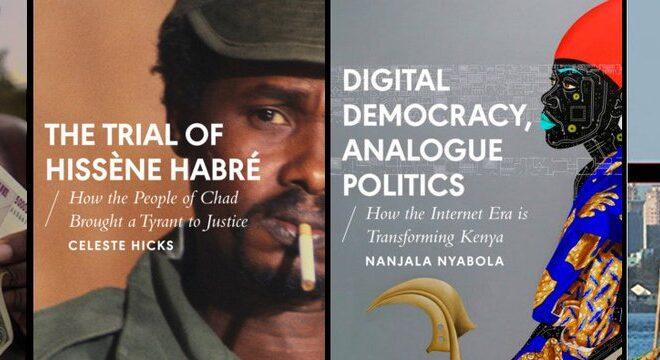Introducing ‘African Arguments-Debating Ideas’

Alex de Waal (Director at the World Peace Foundation) introduces the ethos of Debating Ideas – the latest addition to the African Arguments website.

African Argument’s Book Series latest publications, for a more comprehensive list visit the website https://bit.ly/2WhxwXb
Welcome to African Arguments—Debating Ideas. Our vision to publish writing that is engaged – and when needed, enraged – from the African continent, and by those in intellectual and moral solidarity with Africans. We aim to provide a forum for debate and controversy. We will pick up on the issues of the day; we will use the titles in the African Arguments book series as the basis for discussion; and we will seek to set an agenda for the debates of tomorrow.
In the light of the global Covid-19 epidemic and health emergency in all continents, the first ‘debate’ article we will publish is titled ‘What might Africa teach the world? Covid-19 and Ebola Virus Disease compared’ by Paul Richards, author of Ebola: How a People’s Science Helped End an Epidemic, published in the African Arguments book series. This will be followed by responses and further contributions.
We aim for this to be a place in which African academics and scholars of Africa can explore issues of concern to Africa and to the world. The digital communications revolution has made information about Africa more available than ever before, but too often that has meant that considered analyses and perspectives have been harder to distil. It is easier to exchange opinions, but more difficult to hear arguments.
The African Arguments website was founded shortly after the untimely death of Tajudeen Abdul-Raheem, general secretary of the Pan-African Movement and director of Justice Africa, whose weekly postcards, represented a tradition of speaking frankly and confronting Africans, African leaders and those concerned with Africa, with uncomfortable truths. We aim to keep that tradition alive.
It is easier than ever before for an individual in Africa to be digitally connected to the world as a whole – but perhaps harder for an African argument to be articulated and heard. The domination of the leading American and British universities over scholarly careers and academic content, and the control of western donor agencies over consultancy income and policy engagement agendas, have meant that analysis from Africa is more marginalized than ever. African knowledge is not just ‘local’. Over the decades, knowledge produced by Africans and rooted in African experiences reveals vital truths relevant to the world as a whole, as demonstrated emphatically by a diverse array of anthropologists and political scientists—the most recognised including Achille Mbembe, Paul Gilroy, Mahmood Mamdani, Sylvia Tamale, Fatima Mernissi and Jean and John Comaroff. There are many others too, deserving of a global readership. In the era of the Anthropocene and global disorder, many western assumptions need to be stood on their heads.
African expertise with global relevance ranges from macro-economics and international relations to public health, humanitarian studies and ecosystems research. African Arguments—Debating Ideas will highlight many of these topics.
We aim for this to be a place where African thinkers can set an agenda. We think back to the days in which African universities were founts of intellectual capital, when European and American professors sought to learn and teach in campuses such as Dakar, Dar es Salaam, Ibadan, Khartoum and Makerere, when journals such as Cheche set the intellectual and academic pace. Here I must concede my own formative bias: I went from Oxford to Sudan because in the early 1980s, the University of Khartoum was the global centre of intellectual creativity on refugee and humanitarian studies.
We aim for this to be site where African public intellectuals should feel the epistemological comforts of home. As scholars such as Tejumola Olaniyan have pointed out, the conceptual and methodological parochialism of the Euro-American academy imposes a syndrome of intellectual cramp on scholarship about Africa and its place in the world. Africans in the international academy often feel acutely divided, between (on the one hand) the lived realities of their continent and the most pressing insights and issues that arise, and (on the other) the demands of the high-status academic journals and curricula, which impose priorities, methods and values that are often alien and sometimes plainly wrong. How often has an African researcher read a purportedly ‘peer reviewed’ paper about her own country, which is not only approaching the issues from a perspective that makes little sense to the citizen, but contains basic errors of fact, inference and sometimes language? How often has that researcher had her own writings reviewed by a ‘peer’ who lacks the sensibilities of a citizen – or felt obliged to write a paper in a manner that addresses those alien concerns at the expense of being true to lived experience? And how much more acutely do we suffer intellectual cramp when we are instructed by an editor to re-write for an audience that is (implicitly or explicitly) the western policymaker?
A few years ago I repeated an often-issued challenge to the emergent generation of Africanist scholars to overcome this divide and establish a social science true to reality and fit for purpose. I hoped that the deep and unique insights of thoughtful professionals, writers and researchers, drawing on their reflections on their experiences of engaging with the most pressing challenges of the continent, would find their proper place in the academy.
These are challenges not easily met: the African Arguments book series and this site represent steps towards meeting it.




